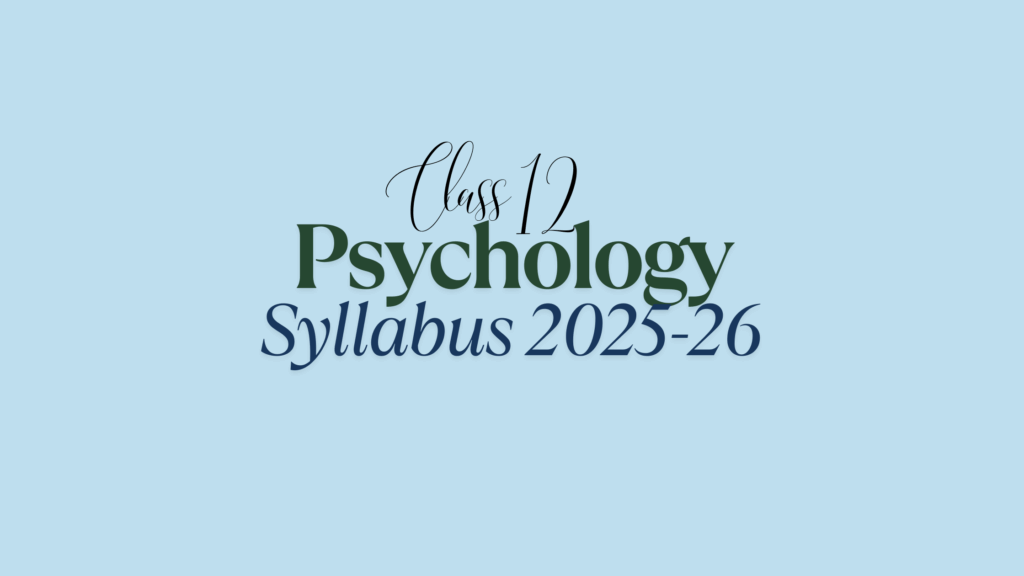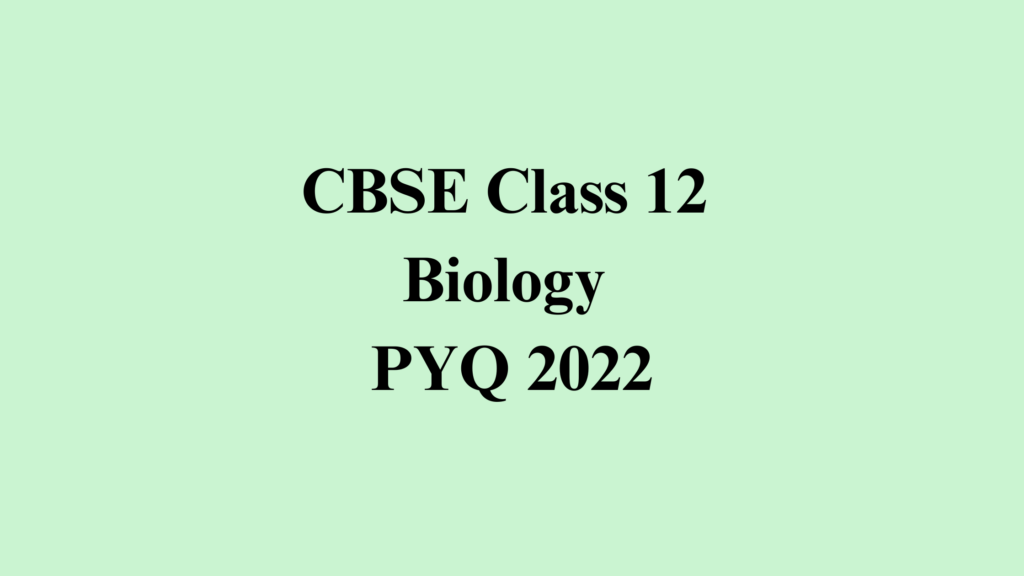Psychology is one of the most fascinating and insightful subjects offered in Class 12. It helps you understand not just others but also yourself. The Class 12 Psychology Syllabus 2025-26 is structured to introduce students to major psychological concepts, theories, and real-world applications. Whether you’re planning to study psychology further or simply want to develop emotional intelligence and critical thinking, this subject offers immense value.
From understanding human behavior to learning about personality, intelligence, stress, and therapy, Class 12 Psychology builds on what you’ve learned in Class 11 and takes you deeper into the workings of the human mind.
Why Psychology Matters
In today’s fast-paced world, understanding mental health and human behavior is more important than ever. Psychology equips you with:
- Emotional awareness and empathy
- Better decision-making skills
- Insights into motivation, learning, and personality
- Awareness about stress and coping mechanisms
- Knowledge of psychological disorders and treatments
It’s not just a subject—it’s a life skill that can help you in any profession, from education and healthcare to business and public service.
Class 12 Psychology Syllabus 2025-26
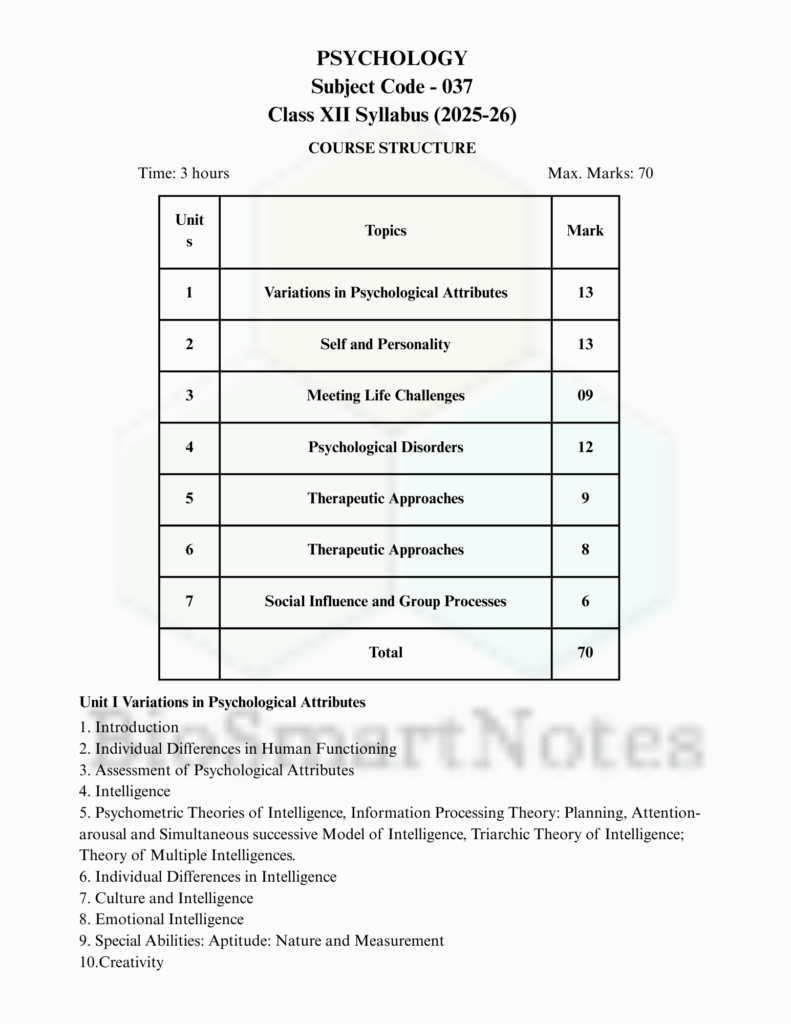
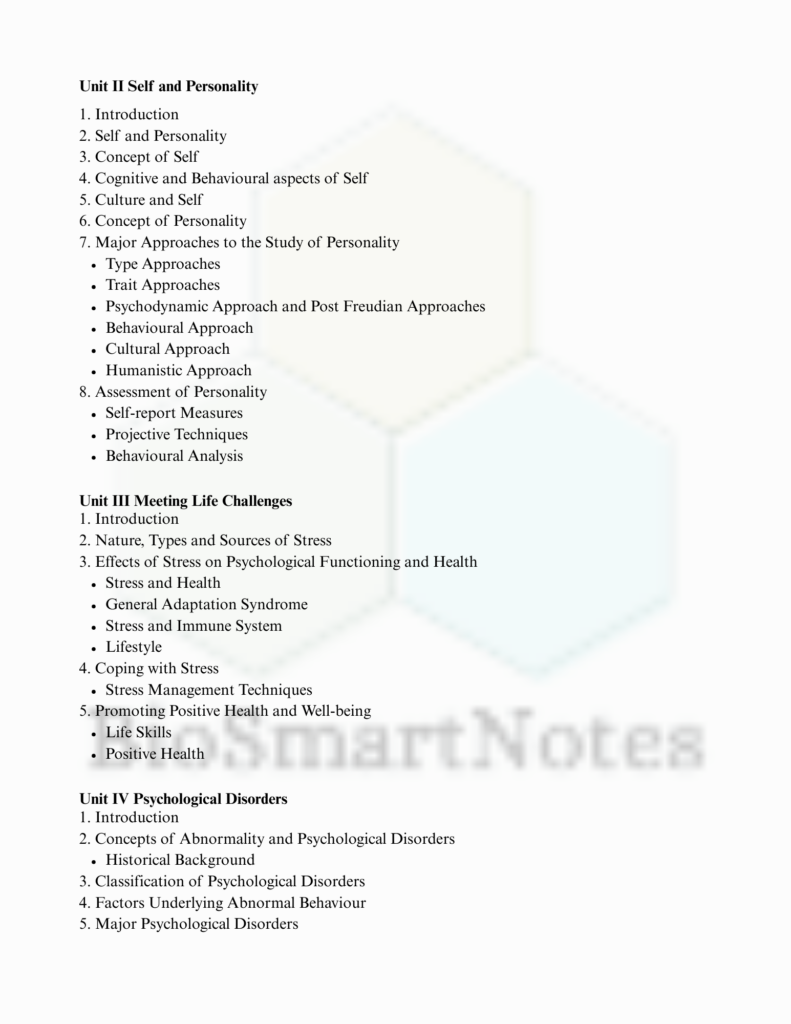
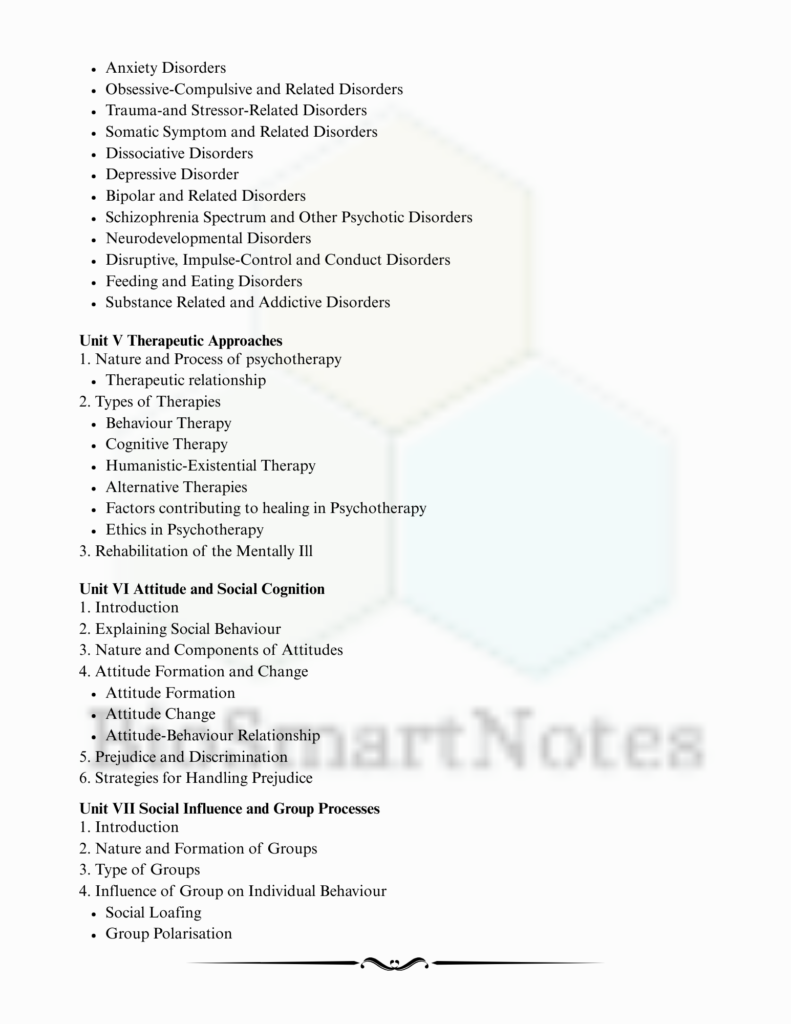
What You’ll Study in Class 12 Psychology
While the exact syllabus depends on your board (CBSE, state boards, etc.), most Class 12 Psychology syllabi include the following major topics:
- Self and Personality – Understand how people develop their identity and what shapes personality.
- Meeting Life Challenges – Learn about stress, coping strategies, and how to manage pressure effectively.
- Psychological Disorders – Study common mental health disorders, their symptoms, and causes.
- Therapeutic Approaches – Explore various therapies used to treat psychological problems.
- Attitude and Social Cognition – Discover how attitudes are formed, changed, and how we perceive others.
- Social Influence and Group Processes – Examine group behavior, leadership, and conformity.
- Psychology and Life – Apply psychological concepts to everyday life situations like health, environment, and media.
- Developing Psychological Skills – Learn how to observe, interview, and use communication skills in psychological practice.
These topics offer a comprehensive introduction to both theoretical and applied aspects of psychology.
How to Study Psychology Effectively
Psychology is a theory-based subject, but it’s far from boring. It becomes interesting once you connect the concepts to real-life scenarios. Here are some tips to help you study smart:
✅ Understand, Don’t Just Memorize
Psychological concepts are easy to remember if you truly understand them. Try to visualize how theories apply in real-life situations—like how stress impacts exams or how group behavior affects decision-making.
✅ Make Concept Maps
Use flowcharts and mind maps to summarize key theories and processes. This helps in quick revision and improves clarity.
✅ Use Real-Life Examples
Support your answers with relevant and relatable examples. This not only strengthens your answers but also shows that you understand the subject deeply.
✅ Highlight Key Psychologists
Many chapters include important psychologists and their theories—like Freud, Maslow, or Carl Rogers. Know who did what, and what their contribution was.
✅ Practice Previous Year Papers
Get familiar with the pattern, commonly asked questions, and time management by solving board question papers from past years.
The Importance of Practical Work in Psychology
Psychology also includes a practical component, which usually involves:
- Conducting experiments or case studies
- Writing observation reports
- Learning how to use psychological tools like questionnaires or rating scales
- Understanding how to conduct interviews and maintain confidentiality
The practical work helps you develop essential research and communication skills. Make sure your practical file is complete, organized, and error-free. Pay attention during lab sessions and prepare well for the viva.
Career Opportunities in Psychology
If you find yourself fascinated by the subject, there are many paths you can pursue after Class 12. With further studies in psychology, you can explore careers in:
- Clinical Psychology
- Counseling and Therapy
- Organizational (Industrial) Psychology
- Educational Psychology
- Sports Psychology
- Forensic Psychology
- Human Resource Management
- Research and Academia
There is also a growing demand for psychologists in schools, hospitals, corporate offices, NGOs, and government sectors.
Tips to Score Well in Psychology
- Stick to your textbook—most exam questions are based directly on it (especially the NCERT if you’re following CBSE).
- Don’t skip definitions and terminology—they’re frequently asked.
- Use structured answers: introduction, explanation, and examples.
- Practice writing answers in your own words while covering all key points.
- Time yourself while writing answers to improve speed and clarity.
- Take revision tests or quizzes with classmates or friends.
Conclusion
The Class 12 Psychology Syllabus 2025–26 is more than just academic learning—it’s a journey into understanding people and human behavior. With the right approach, you’ll find the subject not only interesting but also extremely useful in real life. Whether you want to pursue it further or not, the knowledge and self-awareness gained through this subject will stay with you for life.
So dive into the subject with curiosity, stay consistent with your study plan, and don’t be afraid to ask questions. Psychology is all about exploring how we think, feel, and act—and there’s no better time to start than now.
Additional Study Materials
- Class 12 Biotechnology Syllabus 2025-26
- Class 12 Biology Syllabus 2025-26
- Class 12 Agriculture Syllabus 2025-26
- Class 12 Home Science Syllabus 2025-26
